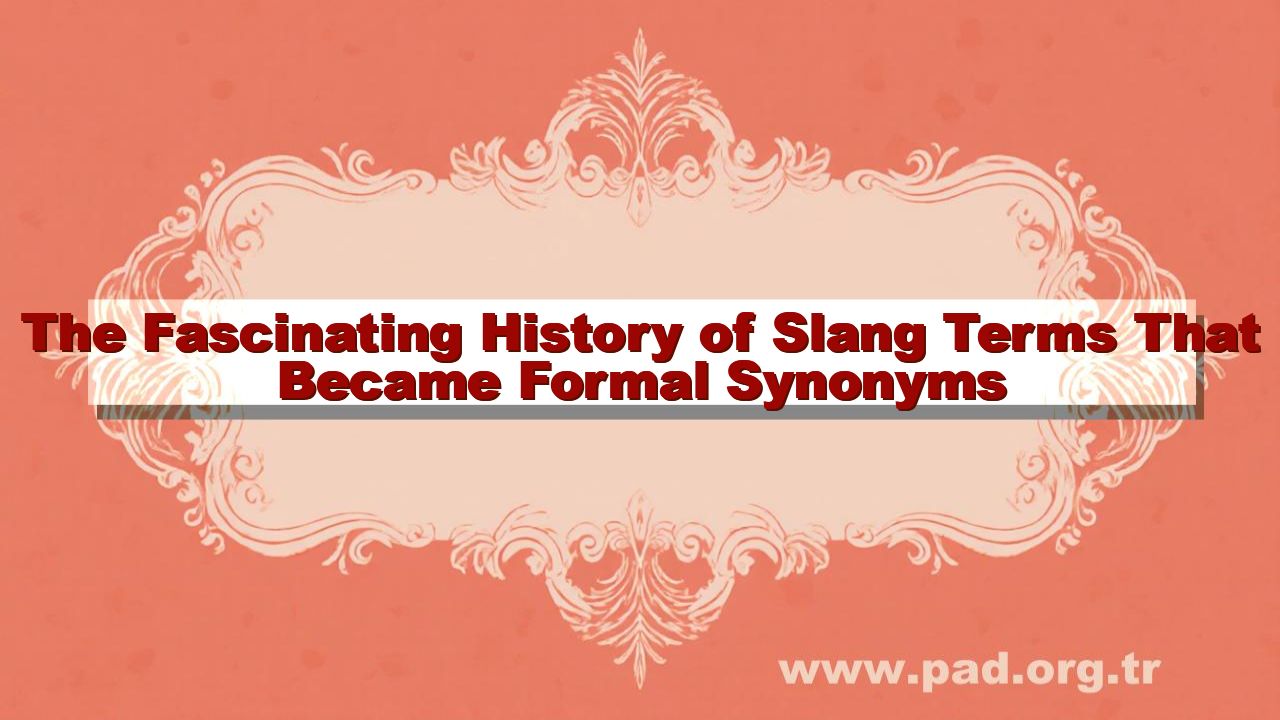The journey of a word from lowbrow slang to a respected, formal synonym perfectly illustrates how language constantly evolves and how social norms shape vocabulary. Many words that we now consider standard, or even formal, synonyms for common actions or concepts were once regarded as vulgar, trendy, or informal—the linguistic equivalent of a passing fad. This upward mobility happens when a term becomes so widely and consistently used that its original “slang” status is forgotten, achieving semantic elevation.
From the Gutter to the Gazette: The Path to Acceptance 📈
The transformation of a slang word into a formal synonym is a gradual process driven by usage and social change. When a word gains widespread acceptance across different social classes and eventually appears in print, its etymology often becomes obscured, and its status changes. Print media, law, and academia are usually the last holdouts, cementing a word’s respectability when they finally adopt it.
Classic Examples of Linguistic Elevation
Many words we use every day without a second thought were once considered slang or highly informal. Their acceptance demonstrates that what is “correct” is simply what the majority agrees upon.
- Nice: Today, it’s a bland, positive synonym for pleasant or agreeable. However, when it entered English from French, it meant ignorant or foolish (from Latin nescius meaning ‘not knowing’). It gradually softened through meanings like ‘fussy,’ ‘precise’ (as in ‘a nice distinction’), and finally settled on its current, mild meaning of pleasant.
- Pushover: Now a widely accepted, albeit slightly informal, synonym for a person who is easily influenced or manipulated. This term originated as American slang in the early 20th century, specifically referring to someone easily knocked down or controlled.
- Jazz: This musical term is now an established synonym for a genre of music, but when it first emerged in the early 1900s, its exact origins are murky but it was definitely American slang with sexual connotations, used to describe energy, enthusiasm, or even promiscuity.
The Modern Digital Accelerator 💻
The process of semantic elevation is accelerating today, primarily due to digital communication and globalized media. Slang terms and Internet neologisms gain critical mass faster than ever before. Words coined purely on the internet can become mainstream synonyms for abstract concepts within just a few years.
- Clout: Originally a very old word for a heavy blow, it was later adopted as slang (particularly in hip-hop culture) to mean influence or social power. It is now a standard, though informal, synonym for influence used widely in marketing and business strategy (e.g., “social media clout”).
- Woke: Though it has African-American Vernacular English (AAVE) roots dating back decades (meaning ‘alert to social injustice’), it became global internet slang in the 2010s. While still highly polarized, it is frequently used by mainstream media and political discourse as a synonym for being socially conscious or politically aware.
Due to the fact that language changes from the bottom up—from common, casual usage, not top-down from dictionaries—we should always be watching how current slang becomes tomorrow’s formal vocabulary. It’s an ongoing, fascinating process of linguistic evolution.


